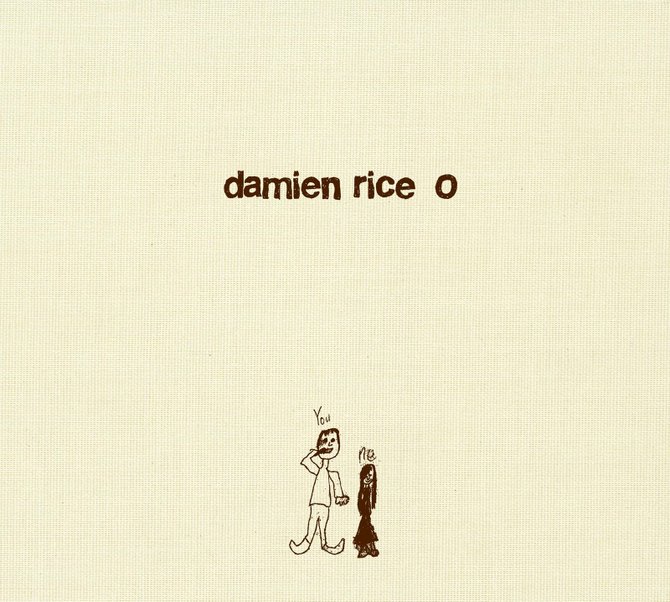Some songs or albums demand to be more than just background noise. Photo by Courtesy Vector Recording
Certain music just slips by you, whether because of indifference, ignorance or initial dislike. I was 12 years old when Damien Rice released his debut album "O." Back in 2002, I piggy-backed on my oldest sister's musical predilections so, at the time, I was more interested in metal and post-hardcore than acoustic musing. It wasn't until a few years later, after my respect for acts like Bob Dylan, Woody Guthrie, and Simon & Garfunkel transmuted into profound admiration, that I revisited Rice's album and plucked two gems: "Delicate" and "The Blower's Daughter."
I still can't consider myself a Rice fan, as those songs represent my entire knowledge, leaving me about five albums short of a compendium. But as I was driving to college, switching songs at head-spinning speed through my iPod on "Shuffle," I heard the opening notes of "The Blower's Daughter" and delayed hitting "next," waiting for Rice to sing one the gut-punching, soul-straining, simple line, "I can't take my eyes off of you."
For some, that might mean nothing, while for others, it triggers a grainy, sepia-toned flashback, the kind seen in movies when characters are feeling particularly wistful. I fit snugly into the second sector.
Eyes closing a little too hazardously for someone who is driving, I sang all of "The Blower's Daughter" like I wrote it myself. Then, as the song ended, I caught myself resuming my high-speed skidding through the last decade or so of musical purchases, without regard to the relevance those songs once held for me. I questioned what it was about that one song that kept me fixed while several thousand others clicked past in a millisecond, and decided it amounts to familiarity.
Familiarity is great, of course. It's fun to sing along to "Don't Stop Believing," knowing it's playing in a million locations simultaneously. But sometimes, that casualness keeps us from recognizing a song's power.
Though not always successful, music is meant to accomplish two things. First and most obvious, it should entertain. Second, it should aid in reflection, affecting your view of a subject or of yourself. It doesn't have to be Vivaldi to have an effect. If Justin Timberlake's "Suit And Tie" makes you consider the vastness of the universe, set it on repeat. When you view or listen to any form of art, though, you enter an agreement, and our shutter-speed shuffling isn't keeping up our end.
Instead, with the hectic pace of every day, music has become a short-term burst of background noise on the way to work or as we exercise. It's safe to assume when Bob Dylan wrote "Like a Rolling Stone," he didn't intend for it to be Track 12 on your "Treadmill Mix."
When is the last time that you listened to a record and it truly affected you? For some people reading, the answer to that question is "never." So what we're left with is an oath without the follow-through, an art form without the emotional weight. Sure, some blame rests on the epoch of the '90s boy bands or the 2000s trend of auto-tuning the bejeezus out of a voice--but most of the fault rests squarely on our collective shoulder.
I'm not chiding anyone for buying music only for the enjoyment of it or for an extra option on his or her iPod playlist. Even Dylan has to eat. But every time that we put the significance of silence in a song or the meaning of a lyric on the backburner, we lessen the impact that it can have on us. I encourage you to look back on those moments when you were sincerely stirred by a musician or band and discover that magnitude anew.
There's nothing wrong with letting the radio waves keep rolling while you drive. In fact, it's always better to be around music briefly than not at all. However, I think there is a need to acknowledge music as art, growing and reshaping with each experience, and our fidelity to that fact retains its value. No matter the genre, whether you gravitate toward Geddy Lee or meditate on Jason Mraz, set out to learn something in every listen. This is one promise you can't afford to fail.



Comments
Use the comment form below to begin a discussion about this content.
comments powered by Disqus